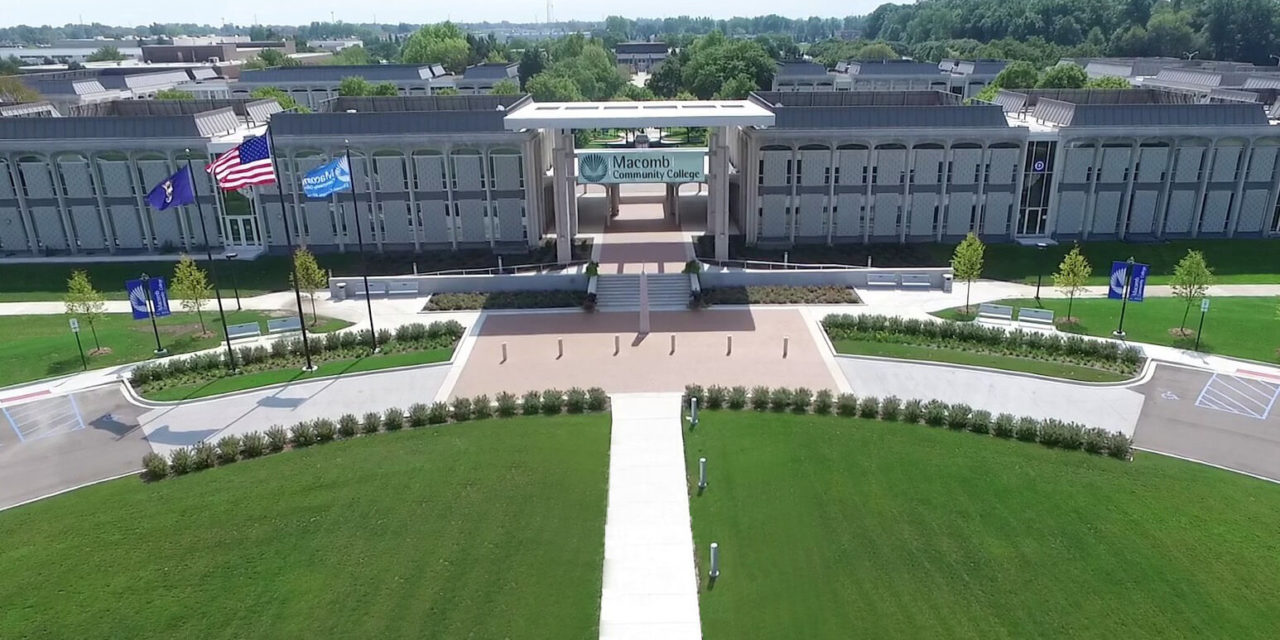UPDATE: The Macomb Community College millage passed on Tuesday by a narrow margin, 34,739 to 31,307. Thanks to absentee voters, the turnout reached 10.6 percent, as only one-fourth of the total ballots were cast at the polls.
Some readers of this blog have complained that the MCC ballot proposal did not receive enough advanced media attention to merit a decent turnout Tuesday. Well, the mediocre media coverage continued this morning as The Detroit News’ story about voting in Macomb County made the defeat of a Van Dyke schools bond proposal the headline. Van Dyke is a tiny district, just a few square miles in size.
Yet, the News lead with the Van Dyke outcome, followed by a winning ballot proposal in Roseville. The MCC tax levy – a 20-year renewal plus a small increase — was relegated to the second half of the story. The Detroit Free Press story about election results didn’t mention MCC at all. This warped sense of newsworthiness can be demolished with one fact: MCC ranks in the top two percent nationally for associate degrees granted by community colleges. (The Macomb Daily put passage of the college proposal as their top story on the online edition.)
Still, about 47 percent of county voters rejected the millage, a sentiment that, if it had emerged as the majority, would have sent the college into a tailspin. Jennifer Haase, chairwoman of the MCC Board of Trustees, pointed out that even with the increase, Macomb’s millage rate remains the third-lowest among Michigan’s 28 community colleges.
“What’s great about Macomb is that our tuition is a quarter less than any Michigan public university, and about 80 percent of students leave debt-free,” Haase said. “Voters know an investment such as this pays off in helping our county residents and Metro Detroit community go to work and get good jobs and contribute to our future.”
Unfortunately, what Tuesday’s outcome shows is that voters don’t know or don’t care much about MCC’s role in the local economy.
*****
Here’s what I wrote yesterday as voting was underway:
I walked into the room and three election workers were alone talking quietly, probably trying to stay awake. Within the small gymnasium, about two dozen voting pedestals stood empty.
At 1 p.m. – lunchtime for many on a comforting, sunny day – I was the lone voter casting a ballot in a special election at my Macomb County precinct. The issue at stake on the ballot was a continuation of funding (with a little boost) for Macomb Community College.
MCC stands as an extraordinary asset to the county – an institution that long mastered the idea of connecting students with skilled trades and emerging occupations that are in demand among a wide array of Michigan companies. The local tax proposal fits in nicely with the view, shared by a bipartisan swath of elected officials from President Trump to Gov. Rick Snyder to House Minority Leader Nancy Pelosi, that workforce education in vocational and mid-tech skills remains a key to boosting American workers and the U.S. economy.
Yet, the 20-year MCC funding plan on today’s ballot was ignored to an embarrassing extent. I stood there filling out my single-issue ballot, a civic duty that took a matter of seconds, then learned from the poll workers that I was the 39th voter of the day. In anticipation of a low turnout, the township had combined three precincts for this Election Day. So, among the 4,600 registered voters in the Macomb Township precincts of 33, 34 and 35, I was voter No. 39. With the morning peak voting period long gone, I alone boosted the three combined polling places’ turnout to 0.84 percent.
We await news whether my surrounding locality can reach the 1 percent mark before the polls close at 8 p.m.
As for the details of the ballot proposal, this is hardly an example of heavy taxation. Voters are asked to renew a property tax levy first approved nearly 20 years ago that amounts to $105 a year for a typical homeowner with a $150,000 house, or less than $9 a month. The millage proposal adds a slight increase for the next 20 years equal to roughly $4.25 annually for that same typical homeowner, or about 35 cents monthly.
To be clear, Macomb Township is a fast-growing, upper middle class community with about 88,000 residents, one of the largest towns in Michigan – city, township or village. It’s a typically suburban area where mostly college-educated parents emphasize the importance of higher education to their kids.
More importantly, MCC enjoys a reputation as one of the premier community colleges in the state and across the nation. It’s a place with outsized political importance that has attracted numerous presidents and governors — and wannabe presidents and governors — through the years due to its role as a campus that’s consistently ahead of the curve in teaching students new technologies and in-demand skilled work.
To be fair, township officials tell me that nearly 6,000 absentee ballots were cast in advance among Macomb Township’s 60,000 voters. That could put the overall turnout at about 10 percent. As a result, since most absentee votes are cast by seniors, that would mean the fate of the MCC millage – at least in Macomb Township – will be determined by a 10-1 margin by a single aspect of the electorate – the elderly.
I wonder: Do we really want retirees, some in their 70s or 80s with pocketbook issues foremost on their minds, deciding the fate of a ballot proposal that will steer the direction of Macomb County’s post-K-12 education system through countless technological transformations over the next two decades?
I also wonder: If the MCC millage passes, what weight, what credibility has been bestowed on the college’s mission if funding for this all-important institution was left to 1 percent of the under-65 voting population that showed up on Election Day?






I received at least 4 things in the mail regarding the MCC millage. I am a senior and I voted yes!!